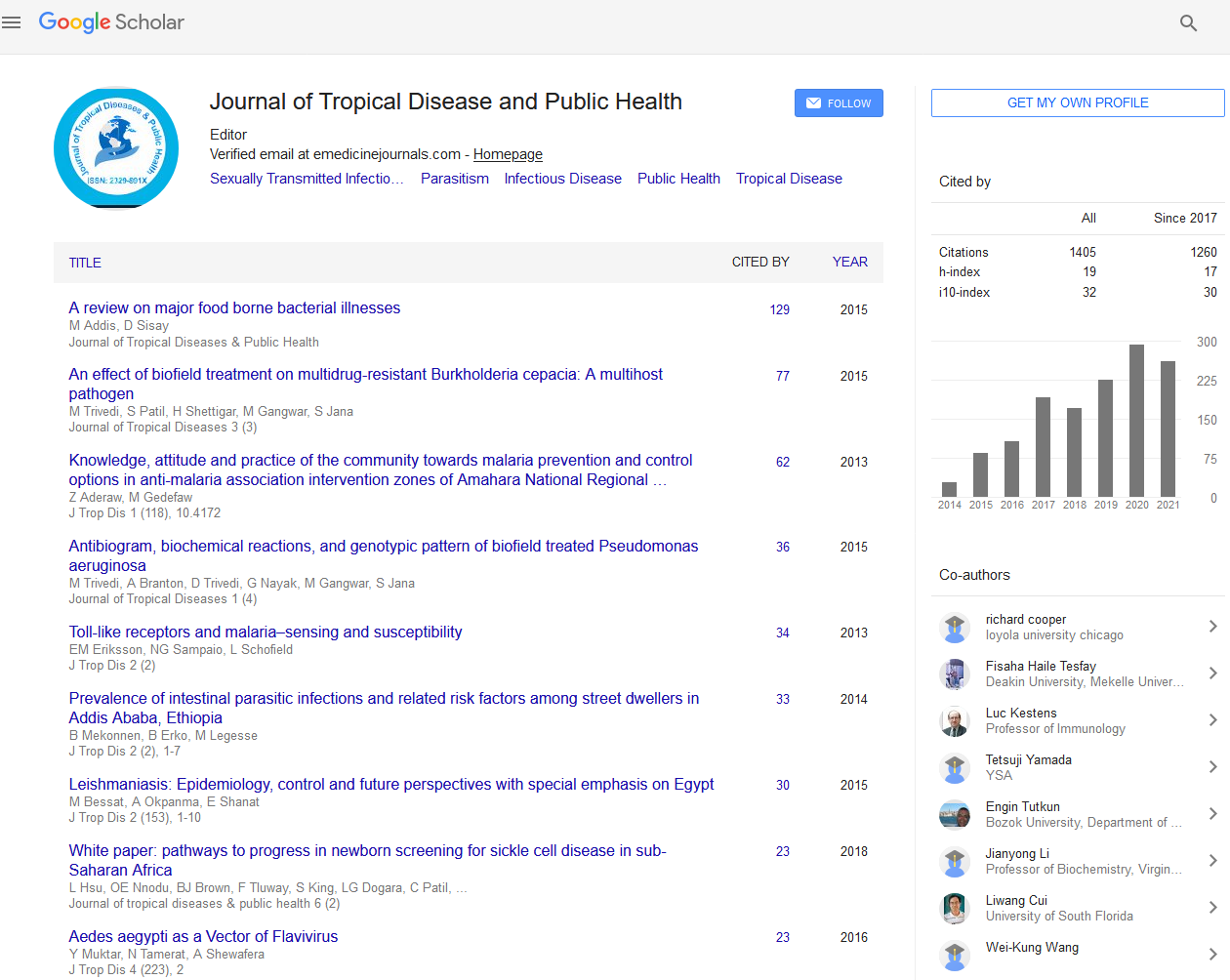Indexed In
- Open J Gate
- Academic Keys
- ResearchBible
- China National Knowledge Infrastructure (CNKI)
- Centre for Agriculture and Biosciences International (CABI)
- RefSeek
- Hamdard University
- EBSCO A-Z
- OCLC- WorldCat
- CABI full text
- Publons
- Geneva Foundation for Medical Education and Research
- Google Scholar
Useful Links
Share This Page
Journal Flyer

Open Access Journals
- Agri and Aquaculture
- Biochemistry
- Bioinformatics & Systems Biology
- Business & Management
- Chemistry
- Clinical Sciences
- Engineering
- Food & Nutrition
- General Science
- Genetics & Molecular Biology
- Immunology & Microbiology
- Medical Sciences
- Neuroscience & Psychology
- Nursing & Health Care
- Pharmaceutical Sciences
Abstract
Factors Determining Physicians’ Decision Making In Treatment and the Outcomes of Nosocomial Diarrhea in a Tertiary Care Hospital: A Prospective Cohort
Pimkamon Siengwattana, Natthanan Poovipirom, Methee Chayakulkeeree, Pattarachai Kiratisin and Monthira Maneerattanaporn
Background: Patients with nosocomial diarrhea (ND) are empirically treated as if they have Clostridium-difficileassociated diarrhea (CDAD), even if their stool tests are negative for C. difficile. We determined the incidence, risk factors, and treatment outcomes of patients with ND in Siriraj Hospital.
Methods: All patients with ND were enrolled. Demographic data, clinical and laboratory and stool for C. difficile toxin were collected including severity and outcomes of ND. Descriptive analysis was performed using mean ± SD/ median ± IQR for continuous data and frequency for categorical data. χ2/Fisher’s exact tests were used to compare groups. Predictors that might determine the decision to prescribe empirical treatment were identified using regression analysis.
Results: We enrolled 105 patients (mean age 67 years), and 89.5% were non-CDAD. During ND development, 95.7% received antibiotics and 3.2% chemotherapy. Eleven patients had CDAD. Common findings included: fever 42.6%, abdominal pain and hemodynamic instability 7.4%; 11.7% had blood cells in their stools and 85.1% had low serum albumin. Median white blood cell count and serum creatinine were 11-880 cells/mm3 and 1.4 mg/dl, respectively. CDAD treatment was prescribed in 48.9% regardless of the toxin result; 95.7% received metronidazole and 4.3% vancomycin. Response outcomes did not differ significantly between the two groups.
Conclusion: Incidence of ND was 4.7%, and 10.6% of these had CDAD. 43.8% of patients with ND were treated as CDAD although they were negative for C. difficile toxin. There were no significant differences in clinical and laboratory features and outcomes between treated and untreated groups. Further study is needed to determine if empirical treatment of CDAD is justified in all cases of ND.


